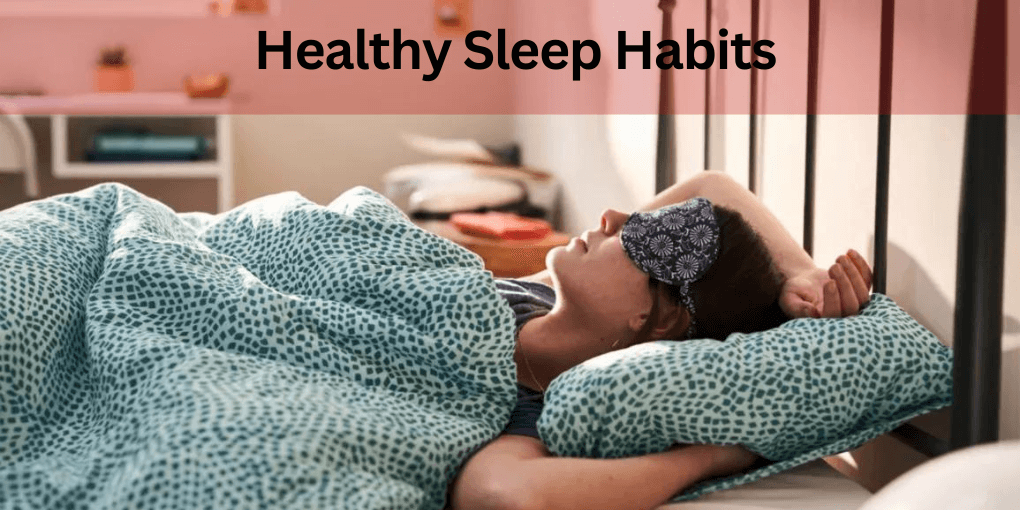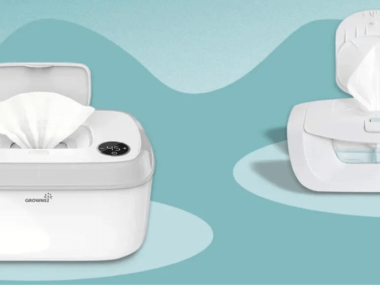Table of Contents Show
Healthy sleep habits are essential for well-being and vitality. With lifestyles becoming increasingly hectic and demanding, it is crucial to prioritize quality sleep to recharge and optimize our physical and mental health.

From establishing a consistent sleep schedule to creating a conducive sleep environment, adopting and maintaining healthy sleep habits can have a profound impact on our daily performance, cognitive function, mood, and quality of life.
In this guide, we will delve into the importance of healthy sleep habits and provide practical tips and strategies to help you improve your sleep routine and achieve a restful and rejuvenating night’s sleep.
Creating a Sleep-Friendly Environment
Creating a sleep-friendly environment is crucial for maintaining healthy sleep habits. By optimizing your sleeping environment, you can promote better sleep quality and
well-being.
Here are some key factors to consider when creating a sleep-friendly environment:
Darkness
Ensure that your bedroom is as dark as possible during sleep time. Light can interfere with your body’s internal clock and melatonin production, making it harder to fall asleep and stay asleep.
Installing blackout curtains or blinds, using an eye mask, or dimming electronic devices can help create a darker sleep environment.
Noise Control
Unwanted noise can disrupt your sleep and prevent you from reaching deep, restorative sleep stages.
Consider using earplugs, a white noise machine, or a fan to mask external sounds and create a quieter sleeping environment.
Soundproofing your bedroom, such as using rugs, heavy curtains, or acoustic panels, can also help minimize noise disturbance.
Optimal Temperature
Keeping your bedroom at a comfortable temperature is essential for quality sleep.
The ideal room temperature for sleep is typically between 60-67 degrees Fahrenheit (15-19 degrees Celsius).
Experiment with different bedding materials, such as breathable sheets or blankets, to maintain a comfortable sleep temperature throughout the night.
Comfortable Bedding
Investing in a high-quality mattress and pillows that suit your individual needs is paramount for optimal sleep.
Your mattress should provide adequate support and comfort to prevent muscle tension or pain. Select pillows that align your neck and spine while sleeping to avoid any discomfort or stiffness.
Limit Electronics
The use of electronic devices before bed can interfere with your circadian rhythm and delay sleep onset.
The blue light emitted by screens suppresses melatonin production, making it harder to fall asleep.
Establish a regular digital curfew, avoiding electronic devices for at least an hour before bed.
Consider using blue light filters or enabling night mode on your devices if you must use them closer to bedtime.
Declutter and Organize
A clean and organized sleep environment promotes relaxation and reduces excess stimuli that may distract you from falling asleep.
Keep your bedroom tidy, removing any clutter or work-related items that can remind you of stressful tasks.
Create a calming atmosphere by incorporating soothing colors, such as soft pastels or cool blues, into your bedroom decor.
Importance of Healthy Sleep Habits for Well-being
Healthy sleep habits play a vital role in maintaining well-being. Adequate and restful sleep is essential for our physical, mental, and emotional health.
Here are some reasons why healthy sleep habits are important:
Physical Health
Quality sleep is necessary for the proper functioning of our bodily systems. During sleep, our body repairs and rejuvenates itself. It helps regulate hormones, supports the immune system, and aids in healing and recovery.
Good sleep habits can reduce the risk of chronic conditions such as obesity, diabetes, and cardiovascular diseases.
Mental Clarity and Cognitive Function
Sleep plays a crucial role in cognitive processes such as memory consolidation, learning, and problem-solving.
Getting enough sleep enhances concentration, focus, and decision-making abilities. It also promotes mental clarity, alertness, and creativity.
Without sufficient sleep, cognitive performance can decline, leading to difficulties in daily functioning and productivity.
Emotional Well-being
Healthy sleep habits contribute to emotional well-being. Lack of sleep can negatively impact mood, leading to irritability, mood swings, and increased vulnerability to stress and anxiety.
On the other hand, good sleep can help regulate emotions, improve emotional resilience, and enhance mental wellness.
Energy and Vitality
Quality sleep directly influences our energy levels and vitality. When we get enough sleep, we wake up feeling refreshed and energized, ready to tackle the day’s challenges.
Conversely, insufficient or poor-quality sleep can leave us feeling fatigued, sluggish, and lacking motivation.
Hormone Regulation
Sleep is closely linked to hormone regulation in our bodies. It helps balance hormones such as cortisol (the stress hormone) and ghrelin and leptin (hormones that regulate appetite and hunger).
Disruptions to sleep can lead to hormonal imbalances, increasing the risk of weight gain, metabolic disorders, and hormone-related conditions.
The Science of Sleep
The science of sleep, also known as sleep science or sleep research, is a multidisciplinary field that explores the various aspects of sleep, including its physiological, neurological, and psychological processes.
Researchers in this field study sleep patterns, stages, disorders, and the impact of sleep on health and well-being.
Obtaining adequate and restful sleep is crucial for maintaining well-being, and establishing healthy sleep habits plays a significant role in achieving that goal.
One of the primary purposes of sleep is to allow our bodies and brains to rest and recover from the activities of the day.
During sleep, our bodies undergo important processes such as tissue repair, muscle growth, and the release of growth hormones.
Sleep also plays a crucial role in cognitive functions such as memory consolidation and learning.
There are two main types of sleep: rapid eye movement (REM) sleep and non-rapid eye movement (NREM) sleep.
NREM sleep can be further divided into three stages, with each stage associated with different brain wave patterns and physiological changes.
Studies have shown that the quality and quantity of sleep we get can significantly impact our health.
Chronic sleep deprivation has been linked to a wide range of negative consequences, including increased risk of obesity, diabetes, cardiovascular disease, and mental health issues such as depression and anxiety.
Sleep disorders, such as insomnia, sleep apnea, and narcolepsy, can also have a detrimental impact on an individual’s sleep quality and, subsequently, their daily functioning.
Sleep scientists study these disorders and aim to develop effective treatments to improve sleep health.
Through research and technological advancements, sleep science has made significant progress in understanding sleep patterns and their connection to various health conditions.
This knowledge has led to the development of evidence-based sleep guidelines that promote healthy sleep habits and environments.
Relationship between Diet and Sleep
The relationship between diet and sleep is crucial for maintaining healthy sleep habits. What we eat directly impacts the quality and duration of our sleep.
Developing good dietary habits can greatly contribute to a restful night’s sleep. Here’s how a healthy diet can positively influence sleep:
Balanced Macronutrients
A well-balanced diet with protein, healthy fats, and complex carbohydrates promotes healthy sleep.
Protein aids in serotonin production, healthy fats enhance sleep quality, and complex carbs induce relaxation by releasing serotonin.
Vitamin and Mineral Intake
Certain vitamins and minerals regulate sleep. Magnesium calms the nervous system, while vitamin B6 aids in melatonin production for sleep-wake cycles.
Proper Hydration
Staying hydrated is crucial for health and sleep quality. Dehydration can cause discomfort and disrupt sleep.
Drink enough water during the day, but avoid excessive intake near bedtime to prevent frequent bathroom trips.
Caffeine and Alcohol Moderation
Avoiding excessive caffeine and alcohol is crucial for healthy sleep habits. Caffeine disrupts sleep cycles and should be limited, especially in the late afternoon/evening.
While alcohol may induce drowsiness, it hampers later sleep stages, leading to fragmented and less restorative sleep.
Mindful Eating and Meal Timing
Practicing mindful eating and timely meals positively affects sleep. Having dinner 2-3 hours before bedtime aids digestion.
Avoiding heavy, high-calorie meals close to bedtime prevents discomfort and disrupted sleep.
Personalized Approach
Everybody’s dietary needs are unique, and it’s important to listen to your body. Pay attention to how different foods and eating patterns affect your sleep.
Keeping a food and sleep diary can help identify patterns or trigger foods that might be negatively affecting your sleep.
Role of Technology in Sleep Health
Technology plays a significant role in sleep health by both providing tools for monitoring and improving sleep quality and potentially introducing challenges to healthy sleeping patterns. Here are a few ways in which technology can impact sleep:
Sleep tracking devices
Many wearable devices and smartphone apps are available that can track your sleep patterns, including duration, stages of sleep, and movement.
These tools can provide valuable insights into your sleep habits and help you identify any issues you may have, such as sleep apnea or restless leg syndrome.
Light-emitting devices
The blue light emitted by electronic devices such as smartphones, tablets, and computers can interfere with the body’s natural sleep-wake cycle.
Exposure to this light before bedtime can suppress the production of melatonin, a hormone that regulates sleep.
To mitigate this, some devices now offer blue light filters or “night mode” settings that reduce the amount of blue light emitted.
Sleep apps and relaxation aids
There are numerous mobile apps available that provide guided meditation, soundscapes, or white noise to help you relax and fall asleep.
These can be beneficial for individuals struggling with stress or anxiety that affects their sleep quality.
Smart home technologies
Devices such as smart bulbs, smart thermostats, and smart speakers can be programmed to create a sleep-friendly environment.
For example, smart bulbs can gradually dim in the evening to simulate sunset, and smart thermostats can maintain a cooler temperature in the bedroom, promoting better sleep.
Sleep disorder treatments
Technological advancements have led to the development of various devices and gadgets used in the treatment of specific sleep disorders.
For instance, continuous positive airway pressure (CPAP) machines are commonly used to treat sleep apnea by delivering a constant flow of air to keep the airways open during sleep.
Conclusion
Developing healthy sleep habits is essential for our well-being. Practicing good sleep hygiene, such as sticking to a consistent sleep schedule, creating a comfortable sleep environment, and prioritizing relaxation before bed, can improve the quality and duration of our sleep.
Additionally, incorporating regular exercise, managing stress levels, and avoiding stimulants like caffeine and electronic devices close to bedtime can also contribute to better sleep.
By making these lifestyle adjustments and being mindful of our sleep routines, we can promote healthy sleep patterns and enjoy the countless benefits of restorative and rejuvenating sleep.
Cathy Ryan
The creative force behind Baby Nurturers - is a passionate advocate for all things baby. With years of experience in the parenting industry, Cathy is dedicated to providing valuable insights, tips, and resources to support parents in nurturing and caring for their little ones.










